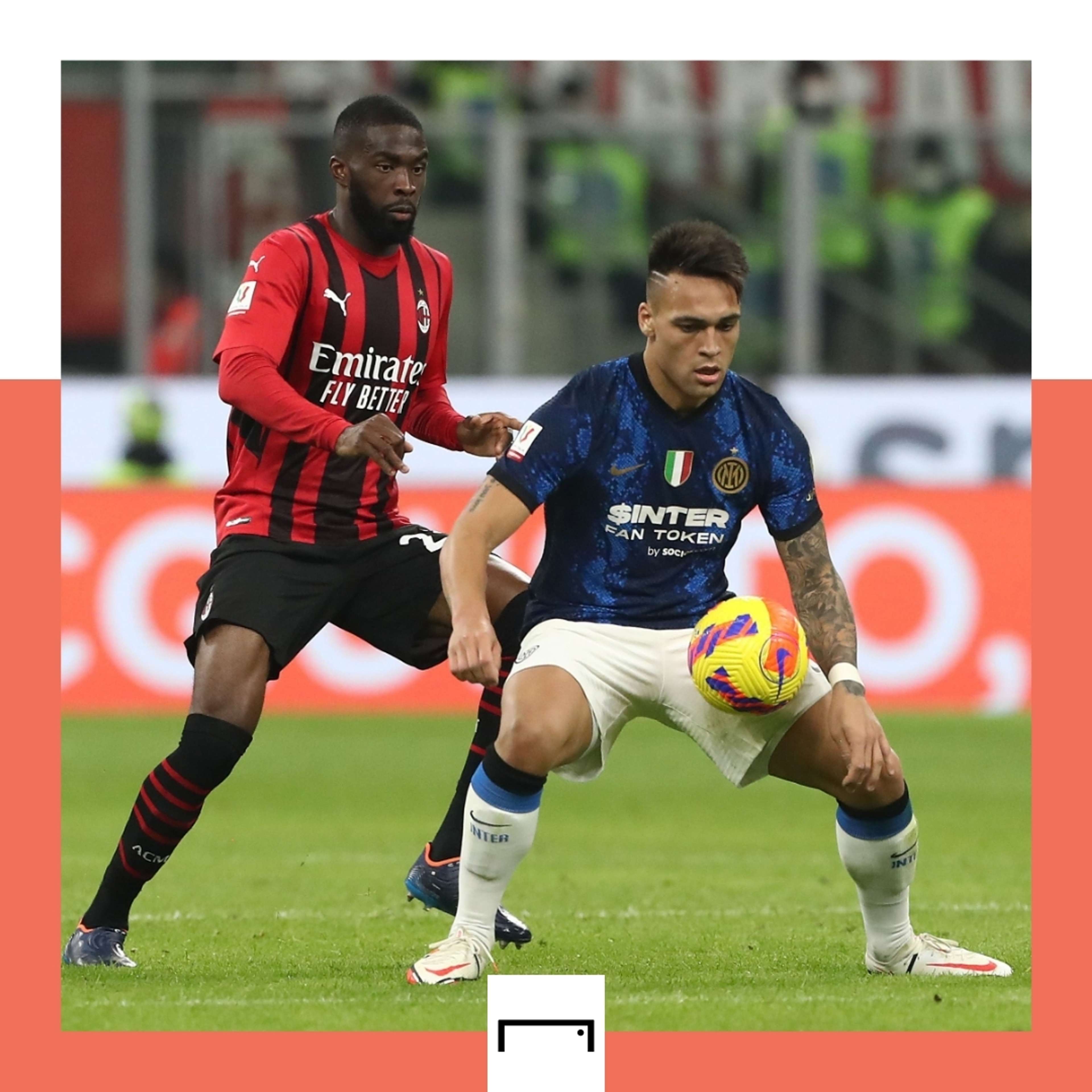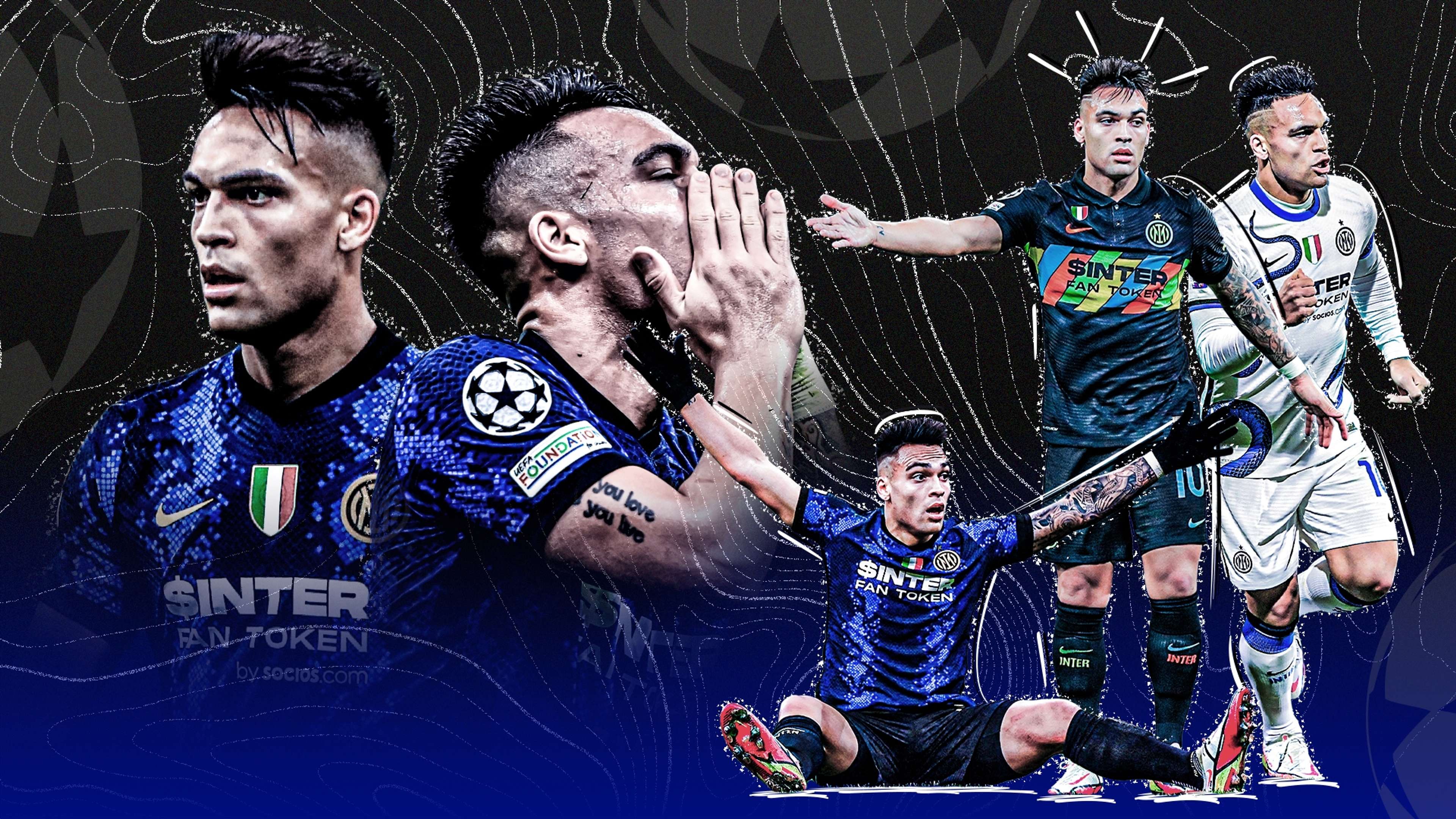Antonio Cassano has always liked Lautaro Martinez. Perhaps he sees something of his younger self in the Argentina international: a talented, selfless and aggressive attacker.
However, when it emerged in 2020 that Barcelona were considering meeting the €111 million (£97m/$121m) buy-out clause in Lautaro's Inter contract, Cassano was among those who felt his former club should cash in.
"Lautaro is very good, but I would sell him,” the Italian told Perluigi Pardo on Instagram. “You brought him for €20m and can now sell him for €100m.
"Lautaro will become even better, but I would say to him: 'Thanks, it's been a pleasure!'"
Of course, that long-mooted move to Catalunya never materialised, which may now be a source of relief at Camp Nou, and regret at Inter.
That may seem a strange thing to say of a player who hit a hat-trick against Salernitana on Friday, but Lautaro remains something of a riddle.
Is he really a €100m player? After all, he had not scored a single goal in Serie A since last facing basement boys Salernitana back in December.
Indeed, the Gazzetta dello Sport had asked a simple but striking question after last week's Milan derby: "Lautaro, what's going on?"
Their concern for a player they no longer recognised was understandable.
 Getty/GOAL
Getty/GOALLautaro was indeed strangely "listless" in the Coppa Italia semi-final first leg against AC Milan. 'El Toro' lacked his usual ferocity, but the Gazzetta was quick to hail the return of the "Raging Bull" after his treble against Salernitana.
But was that the real Lautaro? Or was that the pale imitation that had gone eight games without a goal in the league?
Lautaro's finishing has been a topic of debate for some time now, one that is inextricably linked to arguments over tactics, traits and expectations.
It basically comes down to three questions: What kind of forward is Lautaro? How many goals should he score? And how much is he really worth?
For example, Lionel Messi loves Lautaro, previously describing his fellow Argentine as a "complete" striker, and even going so far as to compare him to his former Blaugrana team-mate and great friend Luis Suarez.
Barca's interest made sense. After all, at that time, Hernan Crespo was touting Lautaro as "the new Sergio Aguero" – another Messi favourite in whom the Blaugrana had held a long-term interest.
"He’s not as sharp in his dribbling, but he is more of a team player than Kun," the ex-Argentina ace told Sky Sport Italia.
“Lautaro is always participating in the move, so he can play as a lone centre forward or with another striker like Romelu Lukaku, even in a trident. I really like his mentality."
Antonio Conte did, too, and Lautaro freely admits that working with the fiery former Inter boss took his game to a whole other level.
It partly explains why he felt compelled to stay at San Siro at a time when Josep Maria Bartomeu's Barcelona were scrambling around trying to find sufficient funds to sign a Suarez replacement two years ago.
Lautaro has since signed a five-year extension, tying him to Inter until 2026, and yet he once again finds himself at the centre of transfer speculation – Arsenal are long-time admirers – with his true value an even bigger talking point than it was two years ago.
Crespo was certainly right about Lautaro's ability to link with a big No.9 like Lukaku, with the pair forming a formidable front two during their two seasons together at San Siro. He's now working well with another big man in Edin Dzeko.
The idea that Lautaro can thrive as a lone forward remains questionable, though.
He has yet to prove himself anything like as clinical or prolific as either Suarez or Aguero, or sufficiently good enough at holding up the ball and bringing others into the game to play the role of a peak Olivier Giroud: a low-scoring centre forward who creates time, space and goals for others.
Cassano remains "crazy" about Lautaro, though, and still believes him capable of scoring 35 goals a season.
However, while Lautaro may now have 14 league goals in 2021-22, it is worth noting that he has never scored more than 17 across a single season in his professional career.
His pressing and work-rate are undeniably impressive – he has made more recoveries in the opposition final third (25) than any other player in Serie A this season – and he can certainly thrive when he has space to run into.
Both he and Lukaku revelled playing under Conte because the Italian's brand of football is all about verticality and rapid transitions.
One could certainly see him flourishing in Liverpool's hard-working and fluid forward line, for example, or playing in front of exciting attacking midfielders such as Bukayo Saka, Emile Smith Rowe and Martin Odegaard at Arsenal.
However, Lautaro can struggle when forced to work in tight spaces when Inter are dominating both possession and territory against inferior, deep-lying, defensive opposition.
He simply does not possess Aguero's predatory instincts or Suarez's ingenuity, so the suspicion persists that Lautaro is merely a potentially excellent side-kick rather than a viable leading man.
As Cassano says, "He's so generous that he's the ideal partner for any type of centre forward."
However, while there is an appreciation for the effort, mobility and movement of atypical No.9s such as Roberto Firmino in modern football, attackers are judged by their strike rate, and Lautaro's leaves a lot to be desired, particularly at the highest level.
He scored five times in his first eight appearances in the Champions League, but it is telling that all of those goals came in four consecutive games and that, going into Tuesday's last-16 second leg against Liverpool, he has drawn a blank in his last 10 outings.
 Getty/GOAL
Getty/GOALHis shot conversion rate in Europe's premier club competition is a paltry 8.11, while he only finishes just over a quarter (27.27) of the 'big chances' that come his way.
That is simply not good enough for a supposedly world-class forward – support striker or otherwise. It is clear that he can't be mentioned in the same breath as Erling Haaland or Kylian Mbappe, at least not yet.
He does not just perform a different role; he is also far too streaky to be compared to the game's finest goalscorers.
At 24, Lautaro obviously still has time to improve certain aspects of his game. His goal return right now is clearly not up to scratch, but perhaps some people need to revise their opinions and expectations of a talented but flawed forward.
He is not Aguero, Suarez, Haaland or Mbappe. He is Lautaro: an industrious attacker capable of excelling in certain formations alongside certain players, but one that still lacks a killer instinct.
What is going on with Lautaro, then? Nothing particularly new, in truth. He has always been inconsistent. And probably always will be.
The only way for him to change that perception is by scoring goals on a regular basis, particularly in the biggest games at the very highest level.
He may have ended his Serie A goal drought last Friday night, but the real challenge for him now is snapping his scoreless Champions League streak against Liverpool on Tuesday, as another blank at Anfield would only cast further doubt on his importance to Inter.
Barcelona certainly will not be back with a big bid this summer, but if one arrives from a flush Premier League club, do not be surprised if the Nerazzurri think seriously about finally following Cassano's advice and say, "Thanks, Lautaro, it's been a pleasure."




